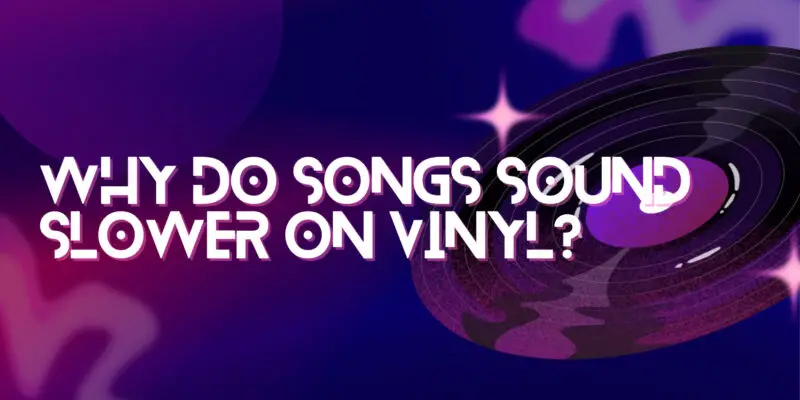Vinyl records have long been celebrated for their analog warmth and unique listening experience. If you’ve ever compared a vinyl record to a digital version of the same song, you may have noticed that songs on vinyl records can sound slower. This phenomenon has puzzled many music enthusiasts. In this article, we’ll explore the reasons behind this perception and why songs on vinyl records can appear to play at a slower pace.
Understanding Vinyl Playback
To understand why songs might sound slower on vinyl, it’s essential to grasp how vinyl records work:
- Grooves: Music is physically etched onto vinyl records in the form of grooves. The depth and spacing of these grooves encode the audio information.
- Turntable Speed: Vinyl records are played on a turntable or record player, which rotates the record at a specific speed measured in revolutions per minute (RPM). The two standard speeds for vinyl records are 33⅓ RPM and 45 RPM.
- Stylus and Tonearm: A stylus, often referred to as a needle, is mounted on a tonearm. The stylus follows the grooves on the record, translating the physical grooves into an electrical signal that is then amplified and sent to speakers.
The Factors at Play
Several factors contribute to the perception that songs on vinyl sound slower:
- Wow and Flutter: Wow and flutter are terms used to describe minute speed variations in the rotation of the turntable. These variations can occur due to imperfections in the turntable’s motor or the record itself. Wow causes a slow, periodic speed change, while flutter leads to faster, more rapid variations. When a turntable has wow or flutter issues, it can create the impression of a slower tempo.
- Pitch Stability: The pitch stability of a turntable, or its ability to maintain a consistent pitch, is crucial. Turntables with unstable pitch may result in variations in playback speed, leading to songs sounding slower or faster.
- Imperfections in Records: Vinyl records can develop imperfections over time, such as warping or surface damage. These imperfections can affect the stylus’s tracking, causing it to momentarily slow down or speed up, which impacts the perceived tempo of the music.
- Perception and Analog Warmth: Vinyl records are often associated with analog warmth and a different listening experience compared to digital formats. This perception can influence how listeners perceive the tempo of songs on vinyl, making them sound slower due to the nuances and warmth associated with analog playback.
Conclusion
The perception that songs sound slower on vinyl records can be attributed to various factors, including wow and flutter, pitch stability, imperfections in records, and the analog warmth of vinyl playback. While vinyl records offer a unique and cherished listening experience, it’s essential to recognize that slight variations in playback speed can influence how music is perceived. These variations are part of the vinyl experience and contribute to the charm of analog audio.


